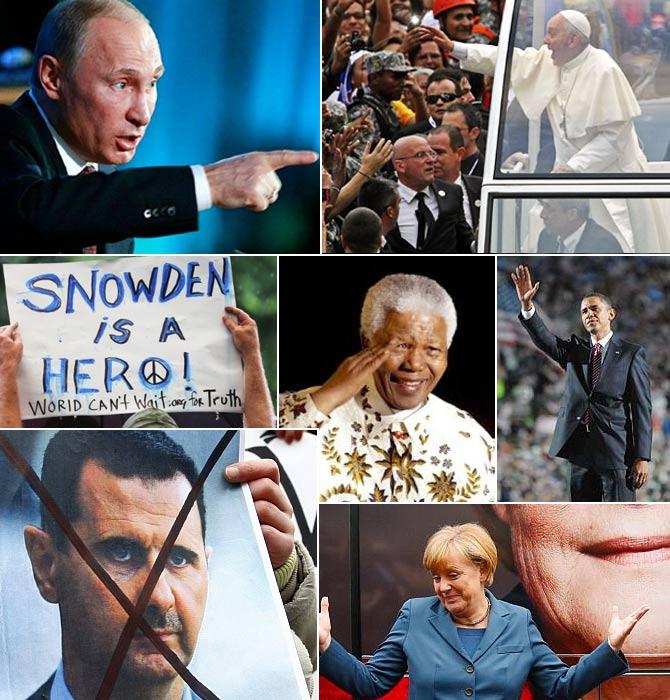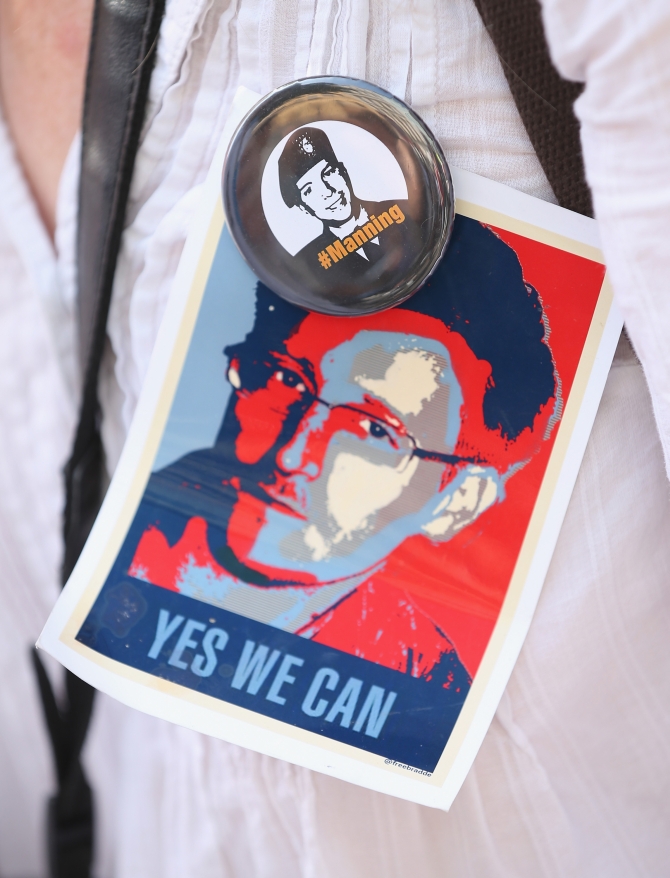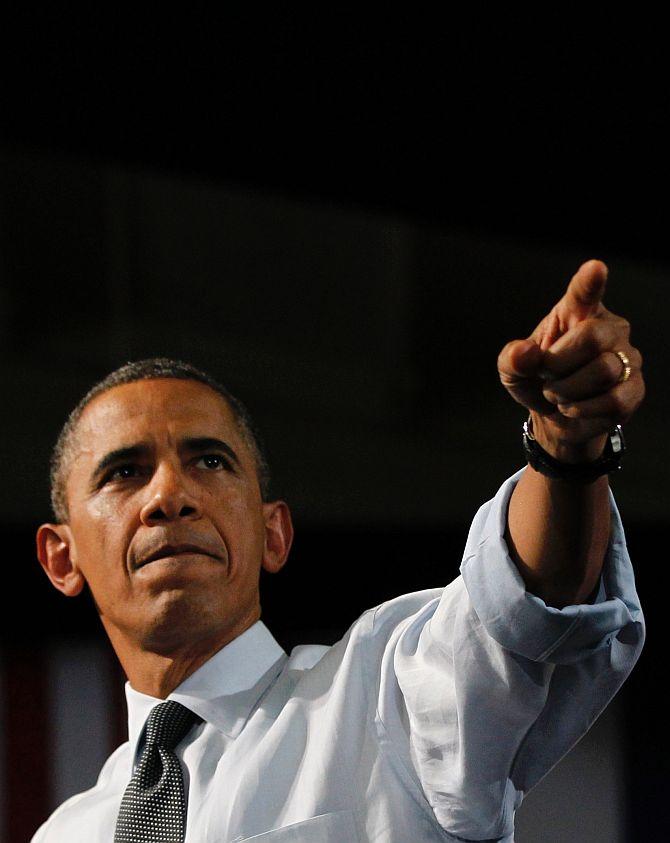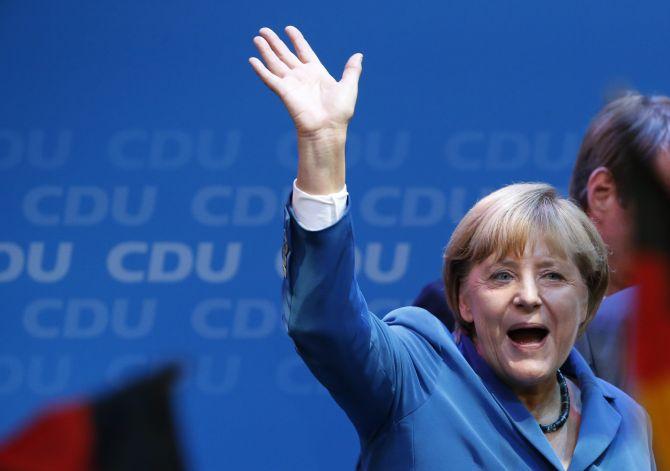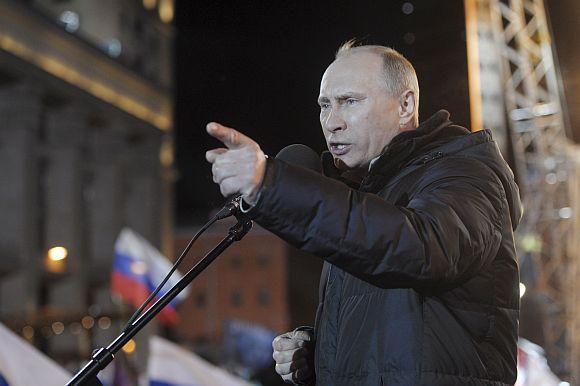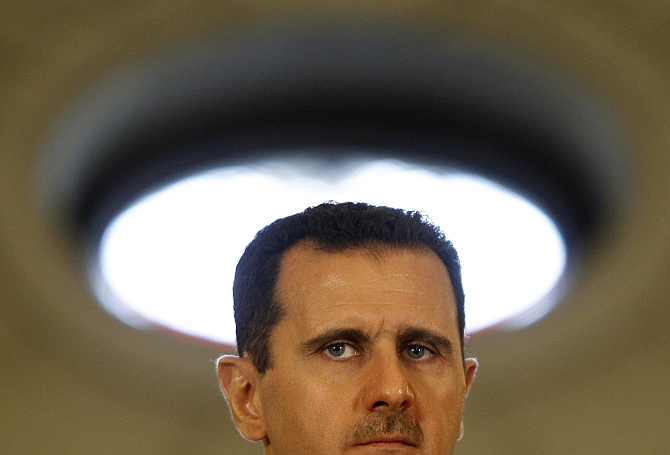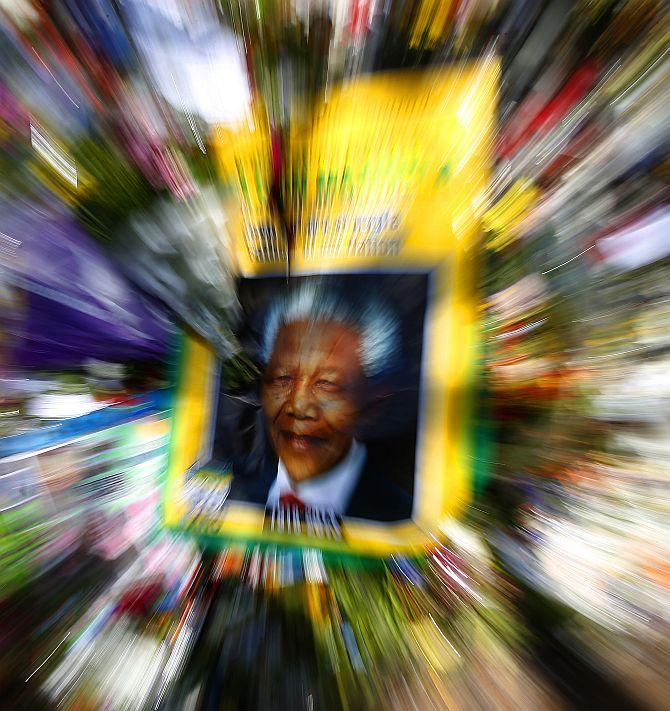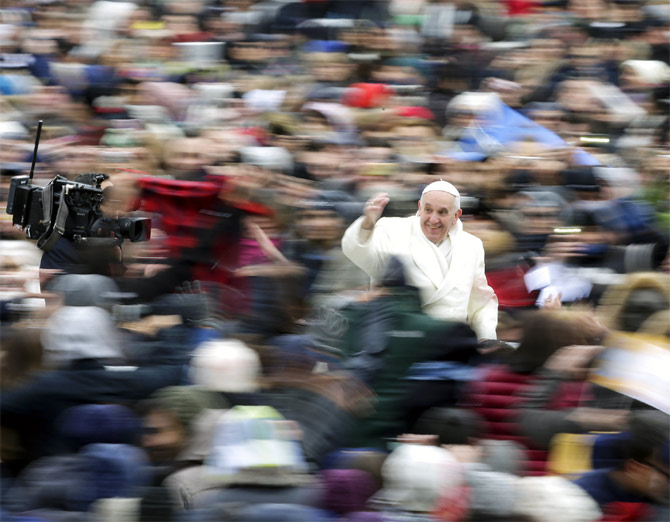 | « Back to article | Print this article |
Vote for the International Newsmaker of 2013
The year 2013 saw some major action, like the ouster of a president, the brutal attack on a Kenyan mall, the chemical attack in Syria, the shutdown in the United States, the death of a legend and much more.
As nations witnessed upheaval and turmoil, we look at some people who grabbed headlines for reasons both good and bad.
Go through our list of international newsmakers and vote for the person you think deserves to be the newsmaker of the year.
Don’t forget to cast your vote at the end of this presentation.
Click NEXT to read further...
Whistle-blower: Edward Snowden
Former National Security Agency contractor turned whistle-blower Edward Joseph Snowden exposed the spying programmes run by the NSA and its British counterpart, GCHQ.
Snowden revealed how the US collected logs of nearly every phone call Americans made. Classified document he leaked showed how the NSA went beyond terrorism, and targeted foreigners, undermining civil rights.
Living under temporary asylum in Russia, Snowden is unable to return to his native US for fear of arrest.
In their concerted response to the disclosures by Snowden, Apple, Google, Microsoft, Facebook, Yahoo, LinkedIn, Twitter and AOL published an open letter to US President Barack Obama and Congress, demanding radical reforms to US surveillance laws, urging an international ban on bulk collection of data to help preserve the public's “trust in the internet”..
Snowden, who stayed in Hong Kong, the former British colony for 34 days, revealed some of the most damaging details about US cyber espionage including snooping on US and people all around the world besides carrying cyber attacks on China.
Click NEXT to read further...
Healthcare champion: US President Barack Obama
Democratic nominee and incumbent President Barack Obama defeated running mate, Vice President Joe Biden to be sworn in for a second term on January 20, 2013.
Obama signed a bill into law to end a disruptive 16-day government shutdown in October and increase the current debt ceiling of $16.7 trillion to prevent the country from a debt default with potentially worldwide economic repercussions.
The US government closed non-essential operations after Congress failed to strike a deal on spending and budget due to differences over 'Obamacare', the signature healthcare programme of President Obama.
Republicans and Democrats blamed each other for the impasse.
The shutdown left nearly 800,000 employees on unpaid leave and closed national parks, tourist sites, government websites, office buildings, and more.
In April the US Senate rejected a White House-backed strong gun control bill, with President Barack Obama slamming the decision as "shameful" and accusing the lawmakers of surrendering to the powerful firearms lobby.
Making its strongest declaration in support of gay rights, US President Barack Obama's administration asked the Supreme Court in March to overturn California's same-sex marriage ban and turn a sceptical eye on similar prohibitions across the country.
In its submission before the Supreme Court, the Obama administration said by depriving same sex couples of the right to marry denies them the dignity respect and stature accorded similarly situated opposite sex couples under the State Law.
In February, the US President announced to withdraw 34,000 American troops from war-torn Afghanistan in the next one year and showed confidence of ending a decade long war by the end of 2014.
Click NEXT to read further...
Scoring a historic win: German Chancellor Angela Merkel
Angela Merkel was sworn in as German Chancellor for a rare third term in December to govern Europe's biggest economy after she painstakingly forged a deal with her centre-left rivals to end three months of post-election limbo.
Merkel, 59, will have a four-year term after being overwhelmingly elected by 462 votes in the Bundestag, the lower house of parliament, where her new left-right coalition holds a comfortable majority.
In October, Germany accused the United States of lying about its surveillance operations in the European country and claimed there are "new indications" that Chancellor Angela Merkel's mobile phone was monitored by the Americans.
Documents leaked by former NSA contractor Edward Snowden carrying the number of a mobile phone used by the chancellor between 2009 and 2012 triggered an investigation by Germany's security agencies, media reports said.
German Chancellor Angela Merkel will be awarded the coveted Indira Gandhi Prize for Peace, Disarmament and Development for 2013 with an international jury headed by Prime Minister Manmohan Singh choosing her.
Click NEXT to read further...
Show of strength: Vladimir Putin
Raising his voice against the US military strike against the Assad regime in Syria, Russian President Vladimir Putin in an op-ed in the New York Times wrote that such a move, despite strong opposition from many countries and major political and religious leaders, including the Pope, will result in more innocent victims and escalation, potentially spreading the conflict far beyond Syria's borders.
His op-ed piece came a day after his American counterpart Barack Obama told war-weary Americans in a nationally televised address that he has decided to postpone an attack on Syria to give diplomacy a chance.
The Russian leader also said he has no doubt poison gas was used in Syria, but accused Syrian rebels for carrying out the chemical weapons attack.
Putin also managed to force neighbouring Ukraine from the embrace of the European Union and yanking it back towards Moscow. At a summit in Crimea in September, the Kremlin's point man on Ukraine spewed dark threats about what would happen if Ukraine ignored Russia, and was laughed out of the room. Two months later, his wishes were fulfilled, The Guardian reported.
Click NEXT to read further...
Defiant: Bashar al-Assad
Syrian opposition and the West accused Syria President Bashar Al-Assad's forces of using chemical weapons on August 21 in a Damascus suburb that reportedly killed hundreds, a charge denied by the government.
The government instead blamed the rebels for carrying out chemical attacks in Damascus and other parts of the country during the over two and half year long civil war that has left more than 100,000 people dead and forced millions to leave the country.
In his first interview since US President Obama sought congressional approval for military action in Syria, President Bashar Assad warned that US and its allies should "expect every action" in retaliation.
Assad warned that his government was not the only player in the region and that action may not necessarily come from his government -- a clear reference to his allies in Iran and the Islamic militant group Hezbollah.
Click NEXT to read further...
Giant of history: Nelson Mandela
Nelson Mandela, a global symbol of resistance against injustice who put an end to the much-despised apartheid regime in South Africa and served as the country's first black president, died at his home in Johannesburg following a lengthy illness.
Nearly 100 world leaders including Indian President Pranab Mukherjee and US President Barack Obama came together in an unprecedented act of homage to Nelson Mandela describing him as a "giant of history".
"Our nation has lost its greatest son. Our people have lost a father," said South African President Jacob Zuma.
Mandela spent 27 years in prison, most of them on RobbenIsland, after being convicted in the Rivonia trial with several others 50 years ago.
He stepped down in 1999 after serving one term as president following the first democratic elections in 1994.
As president, Mandela worked for uniting the polarised nation dominated by tribal politics. He devoted his energy to moderating the bitterness of his black electorate and to reassuring whites with fears of vengeance.
"It is hard to eulogise any man...how much harder to do so for a giant of history, who moved a nation toward justice, and in the process moved billions around the world," Obama said in a 20-minute speech punctuated by reference to the struggle for racial freedom in Africa and America.
Click NEXT to read further...
Revolutionary: Pope Francis
Cardinal Jorge Mario Bergoglio was elected as the first Latin American Pope in history, taking the name of Pope Francis in March.
In his first mass with the cardinals who elected him pontiff, he warned the Catholic Church would become "a compassionate NGO" without spiritual renewal. "We would end up a compassionate NGO. What would happen would be like when children make sand castles and then it all falls down," he said.
He called for the renewal of the Roman Catholic Church and attacked unfettered capitalism as "a new tyranny," urging global leaders to fight poverty and growing inequality.
"I prefer a Church which is bruised, hurting and dirty because it has been out on the streets, rather than a Church which is unhealthy from being confined and from clinging to its own security," he wrote in a bold mission statement for his papacy.
The pope won praise from the LGBT community when he said gay people should not be judged or marginalised. Speaking to reporters on a flight back from Brazil, he said: "If a person is gay and seeks God and has goodwill, who am I to judge him?"
The Pope's remarks are being seen as much more conciliatory than his predecessor's position on the issue.
Pope Francis was named Person of the Year 2013 by Time magazine for changing the perception of the Catholic Church in an extraordinary way within just nine months in office.
Time said the first non-European Pope in 1,200 years is poised to transform a place that measures change by the century.
